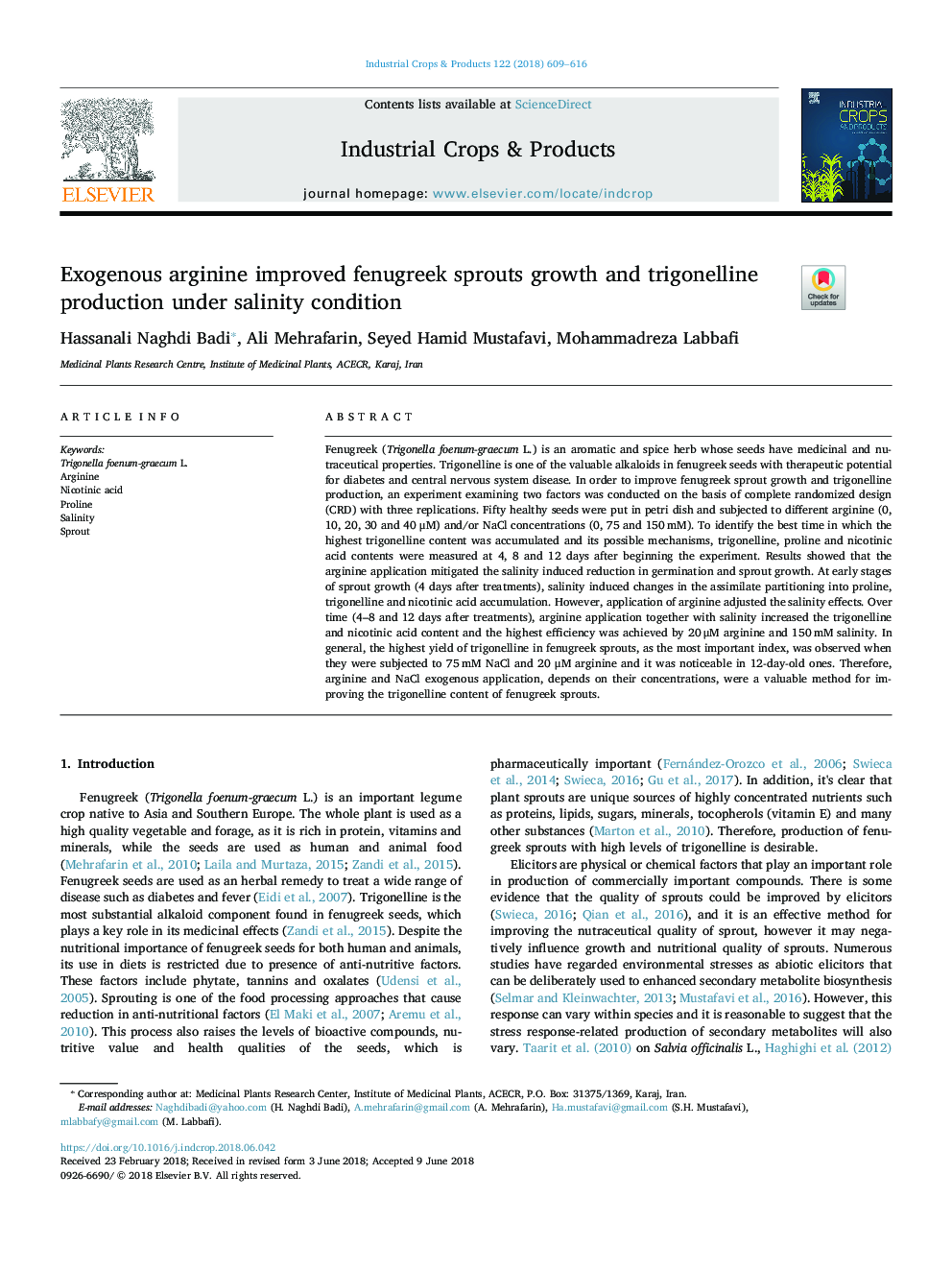| Article ID | Journal | Published Year | Pages | File Type |
|---|---|---|---|---|
| 8879688 | Industrial Crops and Products | 2018 | 8 Pages |
Abstract
Fenugreek (Trigonella foenum-graecum L.) is an aromatic and spice herb whose seeds have medicinal and nutraceutical properties. Trigonelline is one of the valuable alkaloids in fenugreek seeds with therapeutic potential for diabetes and central nervous system disease. In order to improve fenugreek sprout growth and trigonelline production, an experiment examining two factors was conducted on the basis of complete randomized design (CRD) with three replications. Fifty healthy seeds were put in petri dish and subjected to different arginine (0, 10, 20, 30 and 40 μM) and/or NaCl concentrations (0, 75 and 150â¯mM). To identify the best time in which the highest trigonelline content was accumulated and its possible mechanisms, trigonelline, proline and nicotinic acid contents were measured at 4, 8 and 12 days after beginning the experiment. Results showed that the arginine application mitigated the salinity induced reduction in germination and sprout growth. At early stages of sprout growth (4 days after treatments), salinity induced changes in the assimilate partitioning into proline, trigonelline and nicotinic acid accumulation. However, application of arginine adjusted the salinity effects. Over time (4-8 and 12 days after treatments), arginine application together with salinity increased the trigonelline and nicotinic acid content and the highest efficiency was achieved by 20â¯Î¼M arginine and 150â¯mM salinity. In general, the highest yield of trigonelline in fenugreek sprouts, as the most important index, was observed when they were subjected to 75â¯mM NaCl and 20 μM arginine and it was noticeable in 12-day-old ones. Therefore, arginine and NaCl exogenous application, depends on their concentrations, were a valuable method for improving the trigonelline content of fenugreek sprouts.
Related Topics
Life Sciences
Agricultural and Biological Sciences
Agronomy and Crop Science
Authors
Hassanali Naghdi Badi, Ali Mehrafarin, Seyed Hamid Mustafavi, Mohammadreza Labbafi,
